PRESERVING A MILITARY LEGACY FOR FUTURE GENERATIONS
The following Reflections represents SPC Reginald Furtick’s legacy of his military service from 2006 to 2014. If you are a Veteran, consider preserving a record of your own military service, including your memories and photographs, on Togetherweserved.com (TWS), the leading archive of living military history. The following Service Reflections is an easy-to-complete self-interview, located on your TWS Military Service Page, which enables you to remember key people and events from your military service and the impact they made on your life. Start recording your own Military Memories HERE.
Please describe who or what influenced your decision to join the Army.

Both of my grandfathers served in World War II. One as an Army Chauffeur to his Battalion Commander during Canal Zone operations in Panama. The other was a Naval Radarman Third Class aboard the USS Livingston.
Despite them being similarly reserved and not the type of men to brag, I could hardly wait to visit them so I could beg them to tell me war stories. The experiences they shared with me made a lasting impression during my early childhood, which further aroused my desire to serve my country.
Because my maternal Grandfather’s Navy stories always seemed a bit more intriguing, I first went to my local Navy Recruiter’s Office, only to find the lights off and no one in sight behind a locked glass door.
By this time, an Army Recruiter a few doors down, by the name of Staff Sergeant Barney Frith, noticed my dilemma. In a deep raspy voice, he asked me if I’d like to come have a chat in his office — and needless to say, after a few minutes of chatting, he was typing as fast as he could at his computer desk and scheduling my Physical Fitness Exam.
SSG Frith visited my Grandfather Furtick and me on numerous occasions and kept up with me throughout the enlistment process. Upon graduating from AIT, we spoke about my aspirations, and he gave me some of the best advice I’ve ever been given, which still holds true to this day. The man simply wasn’t your average Army Recruiter looking to enlist as many of America’s youth as possible. He was a kind and caring man who looked after his Recruits and placed their well-being before his own. My Grandfather really believed I had made the right decision to Go Army, and so did I.
Note: Just two short years after SSG Frith saw me off to MEPS in Memphis, Tennessee, I discovered he had been killed in a heavy-machinery accident while working on his property. I will never forget what an amazing man he was.
May Staff Sergeant Frith Rest In Peace.
Whether you were in the service for several years or as a career, please describe the direction or path you took. What was your reason for leaving?
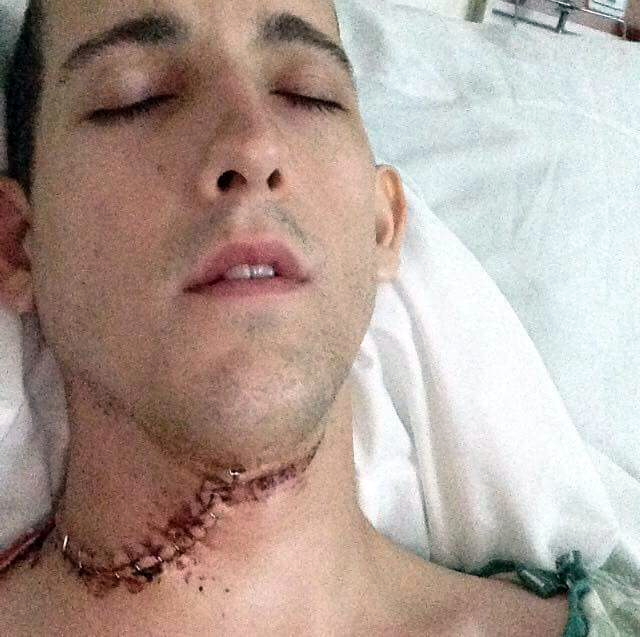
I set out to join the Army’s Ordnance Corps with a sincere desire to learn all I could. It’s not so much that I was eager to learn to become a Quartermaster, but more so that I just wanted to be able to perform my tasks proficiently and professionally.
The 63 Juliet series MOS has proven time and time again to be a major blessing, as I still find myself using the vast skills I learned in Advanced Individual Training in present-day life.
Being the only 63 Juliet attached to the 3-27 HIMARS Battalion (Fort Bragg) in 2007, I was able to maintain my company’s Overall Organizational Readiness at 92 Percent during a five-day assessment exercise ordered by the Battalion Commander. This was brought on totally by surprise, and I earned the first of three Army Achievement Medals for my efforts.
Speaking of suddenly, I came down very ill following my second combat tour in Iraq, making my reason for leaving the service quite difficult to talk about.
Anyway, the Army hospital personnel at Fort Hood could not determine what was causing me so much pain and fatigue, and my window for Reenlistment had just opened upon repatriating back to the United States from Iraq.
I had very little time to decide whether I should reenlist for the third time or separate from service. I honestly did not believe I would be able to continue in active service, so I requested transfer and reassignment orders to be placed in the Army Reserves and was honorably discharged.
Within a matter of months following separation, my civilian doctor finally biopsied what he discovered to be Squamous Cell Carcinoma of the tongue and possibly lymph nodes. SCC is a rare cancer that the VA is now proposing to service-connect many Veterans of the Persian Gulf era.
It took two separate partial glossectomies and a single neck dissection to defeat the cancer. I have been in remission since 2014.
If you participated in any military operations, including combat, humanitarian and peacekeeping operations, please describe those which made a lasting impact on you and, if life-changing, in what way?
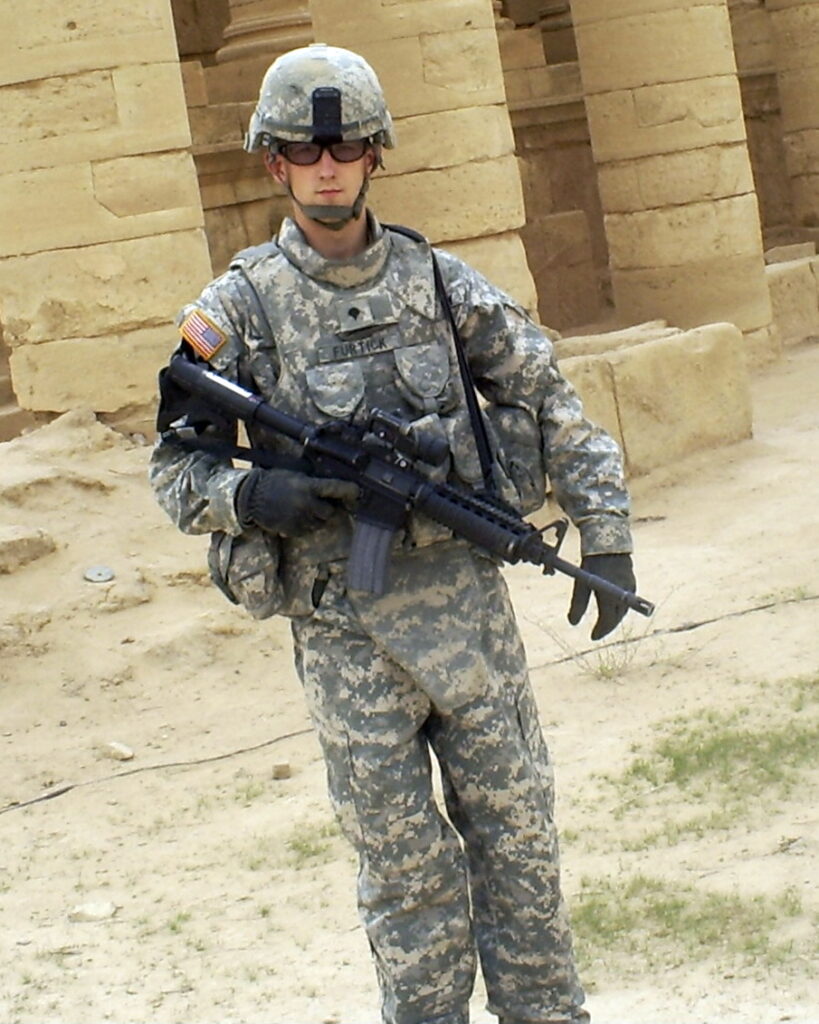
I was directly involved in dozens of combat support, security, and logistical objectives during both of my tours in Iraq. My most memorable one was my Unit’s mission of enrolling hundreds, if not thousands, of Iraqi local-nationals into a biometric database using Handheld Interagency Identity Detection Equipment.
After Saddam Hussein’s regime had been entirely dismantled, my Unit’s responsibility was to assist in the complete restructuring of the Iraqi Army and Police Forces. This definitely made the most significant impact and changed how I viewed the Iraqi people in general.
It opened my eyes to the realization that not all Iraqi people were my enemy. I can’t say I made friends with any of the English-speaking recruits, but I shared a few meals with some of them and learned a lot about Iraqi culture and customs.
For our tireless efforts over a several-month span, a few of us were awarded not only with yet another “medal for the stack,” but we were also given the rare privilege of visiting the Hatra Ruins in the Nineveh Governorate.
This gigantic walled city is thousands of years old and dates back to ancient Mesopotamia, mentioned throughout the Old Testament of the Bible. I took many pictures of our visit there and even walked inside the barred prison cells to get a feel for what being jailed would’ve been like in 230 A.D. What remains of the place today is a memory I will never forget.
I re-enlisted for a second time at the site of the ruins, with Captain Joe Parker, my Company Commander, officiating the ceremony and administering my Oath of Reenlistment.
Did you encounter any situation during your military service when you believed there was a possibility you might not survive? If so, please describe what happened and what was the outcome.
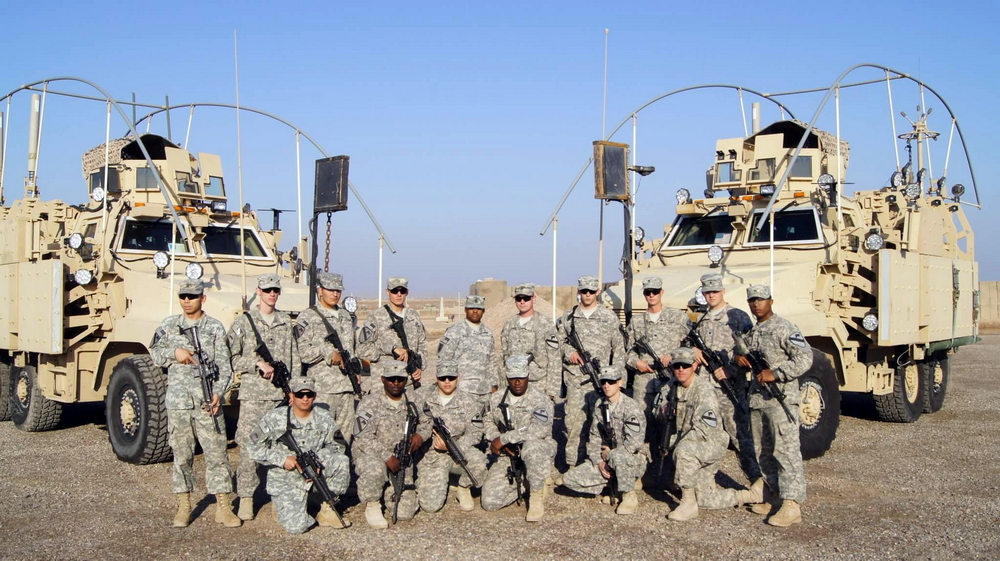
There were more life-threatening events in two deployments to Iraq than ten men could ever count. At Contingency Operating Base (COB) Basra, Iraq, enemy forces regularly fired rockets and mortars into our operation centers, especially on religious holidays. When U.S. radars detected incoming fire, the alarms would sound, and we would “run for the bunker” to take shelter.
This went on throughout my entire second deployment. We never knew when it was coming, and we just knew that it was.
Being my First Sergeant’s lead Gunner of choice for our Gun Truck Platoon’s Security Patrols, I also encountered multiple IED blasts, two of which directly hit my convoy and, on numerous other occasions, indirectly.
Between my unit and others stationed on COB Basra, we lost a substantial number of Soldiers to IED blasts and millions of dollars worth of vehicles and equipment.
Of all your duty stations or assignments, which one do you have fondest memories of and why? Which was your least favorite?
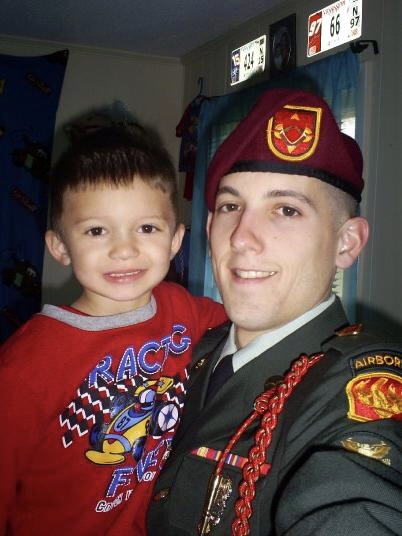
The fondest memories I have are those I made before I went to the war. My favorite assignment was with the 3rd Battalion, 27th Airborne Field Artillery (HIMARS), Fort Bragg, which has since been re-designated and no longer serves as an Airborne Unit.
It was the only United States Army HIMARS Battalion of its kind in those days, making the HIMARS Troops feel extremely special and unique. We were treated like Kings, to be quite honest.
The only downside to being with such an elite group of men and women was those four to six-mile company runs every morning, and sometimes even on Saturdays. Our Chain of Command must’ve surely believed we would need to run long distances somewhere down the line because they kept us in tip-top physical shape. We took a lot of pride in knowing we were well prepared for full mobilization to any continent in the world in just 16 hours.
My least favorite assignment, and I’m sure everyone reading this can agree, was the National Training Center (NTC), Fort Irwin. The Mojave Desert was well above one hundred and twenty degrees in the summertime, yet it would turn ice cold after sunset. I called Fort Irwin the left leg of hell!
From your entire military service, describe any memories you still reflect back on to this day.
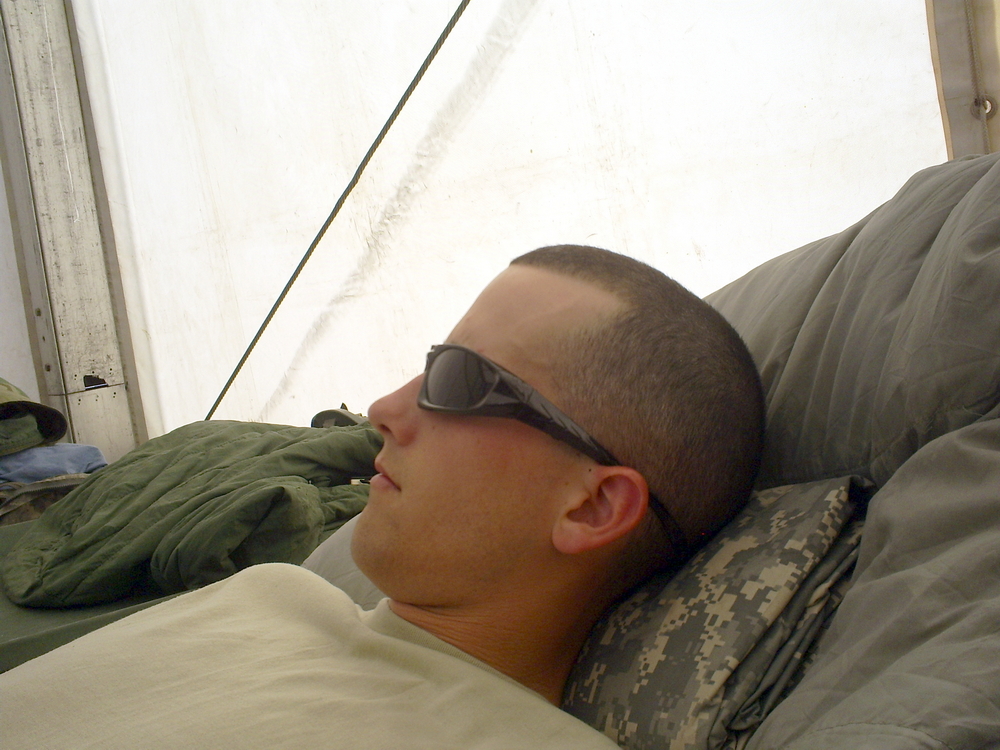
There are so many wonderful memories that it would require a memoir to be written to describe them all.
However, the first one that pops in my head is the C-RAM firing off in the dead of night during my deployment to COB Basra. The C-RAM (short for Counter Rocket Artillery and Mortar) can destroy multiple incoming enemy artillery rounds right out of the night sky and fires 4,500 20mm HEIT-SD rounds per minute.
I’m not too sure how many decibels it emits while engaged, but I slept about 50 meters from the nearest one on the COB, proving itself as my worst nightmare of all. The thing was just overwhelmingly loud!
What professional achievements are you most proud of from your military career?
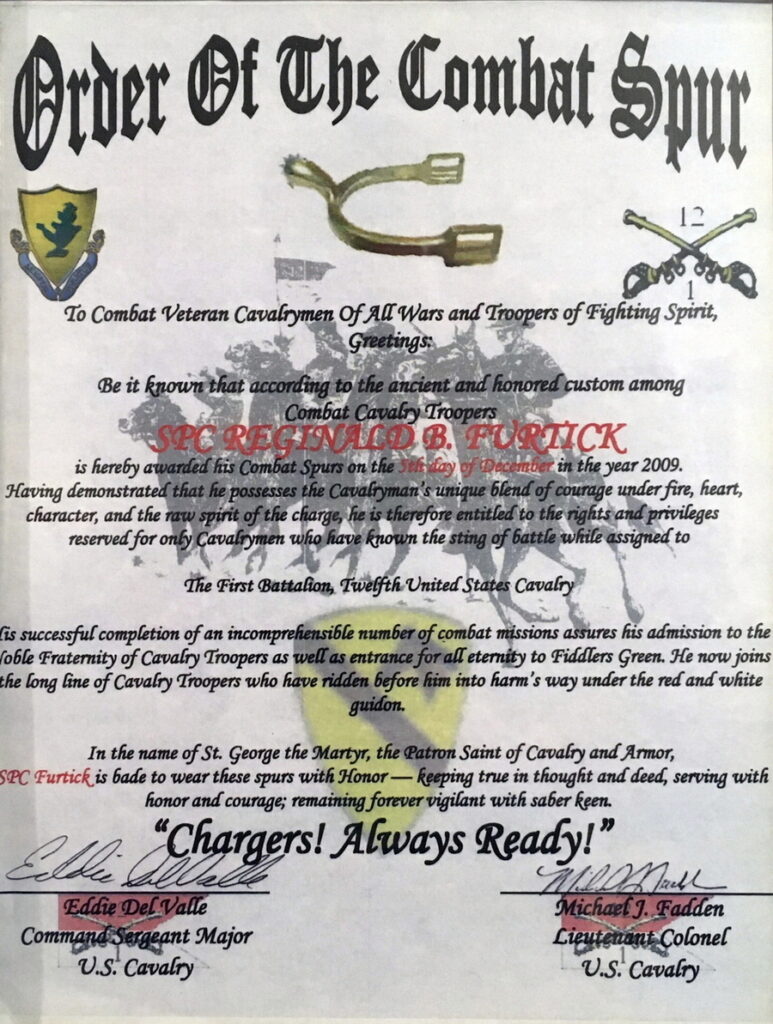
The achievements I am most proud of are the E-5 Promotion Board that I passed with a perfect evaluation, my 801 combined hours of Army educational Correspondence Courses, my Expert Marksmanship Qualification, my Combat Life Saver Course Certification, my reclassification training to 91 Hotel (Track Vehicle Mechanic) at Fort Hood between our two deployments, and most of all, my entrance into the noble fraternity, Fiddlers Green.
I was promoted to E-4 Specialist on a waiver in November of 2007 and became promotable while in Iraq. It would’ve been great to receive my E-5 Sergeant stripes, but I never could obtain enough promotion points, as hard as I tried. The Army only lowered my points below 798 on one occasion that I can recall, and that was the month before I passed the board. That was quite the bummer because after I became promotable, they jumped right back up to 798 and stayed there the entire length of my active service. But hey, at least I was prepared in every other way possible.
Additionally, I learned good communication skills, how to multi-task under stressful conditions and the art of patience. These may not be as professional as those mentioned above, but they certainly are traits I did not possess before my military service.
Of all the medals, awards, formal presentations and qualification badges you received, or other memorabilia, which one is the most meaningful to you and why?
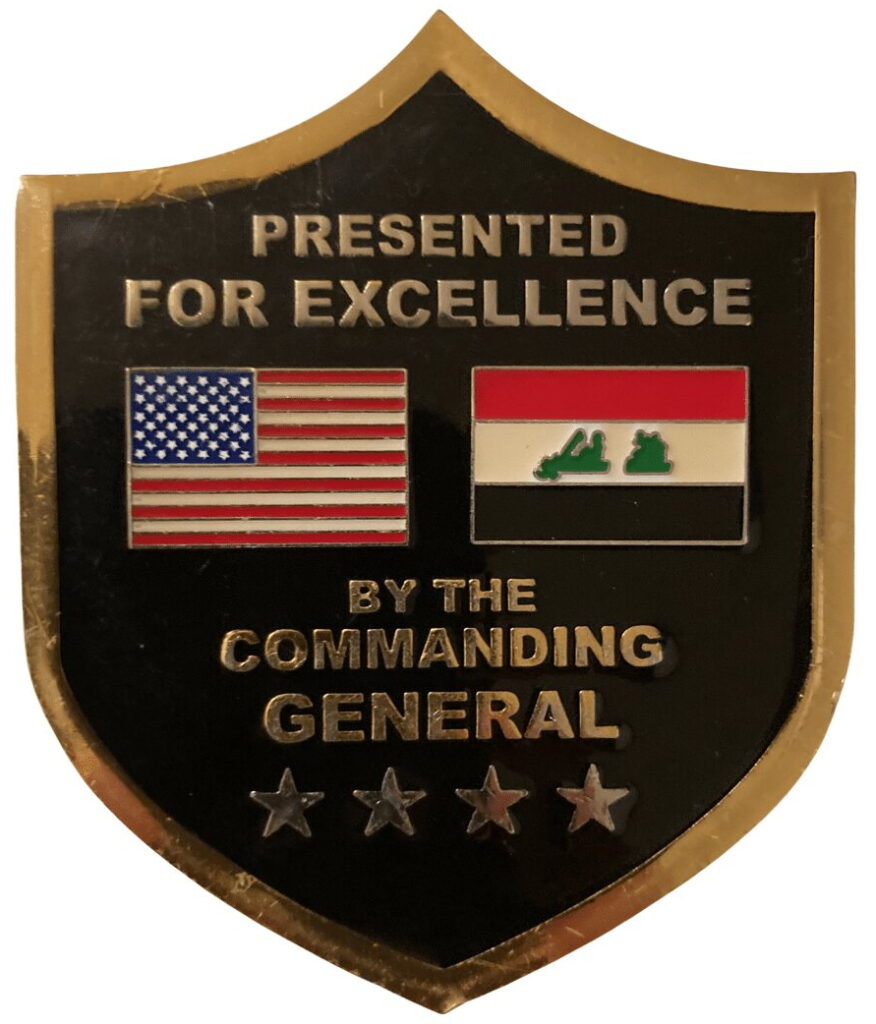
I must say that out of all my official medals and awards, the most meaningful one would have to be the Excellence Coin I received from the handshake of four-star General Raymond T. Odierno (Multi-National Forces-Iraq). Sadly, I recently discovered that General Odierno passed away after his own battle with cancer.
I never did know which Officer or NCO recommended me as a potential candidate for the honor of meeting such a high-ranking General, but I do know it had to have been someone close to me within my Battalion.
General Odierno only had a few Coins to give, and he noted they would have to go to only the truly deserving Soldiers. One afternoon, I was called from the motor pool to go to our Command Headquarters at COB Q-West, Iraq.
I met General Odierno, and he presented the Coin to me during a privately held meeting with his Officers as a token of his appreciation for what he said was, “Your willingness to do things without having to be told!”
He poked fun at my Mississippi accent, and when I told him I was born in Tupelo, he said he loved Elvis Presley’s music. He was just an all-around cool guy, after all. I suspect my Command Sergeant Major or First Sergeant had something to do with me being recommended, as those two were constantly driving by, eye-balling me.
Which individual(s) from your time in the military stand out as having the most positive impact on you and why?
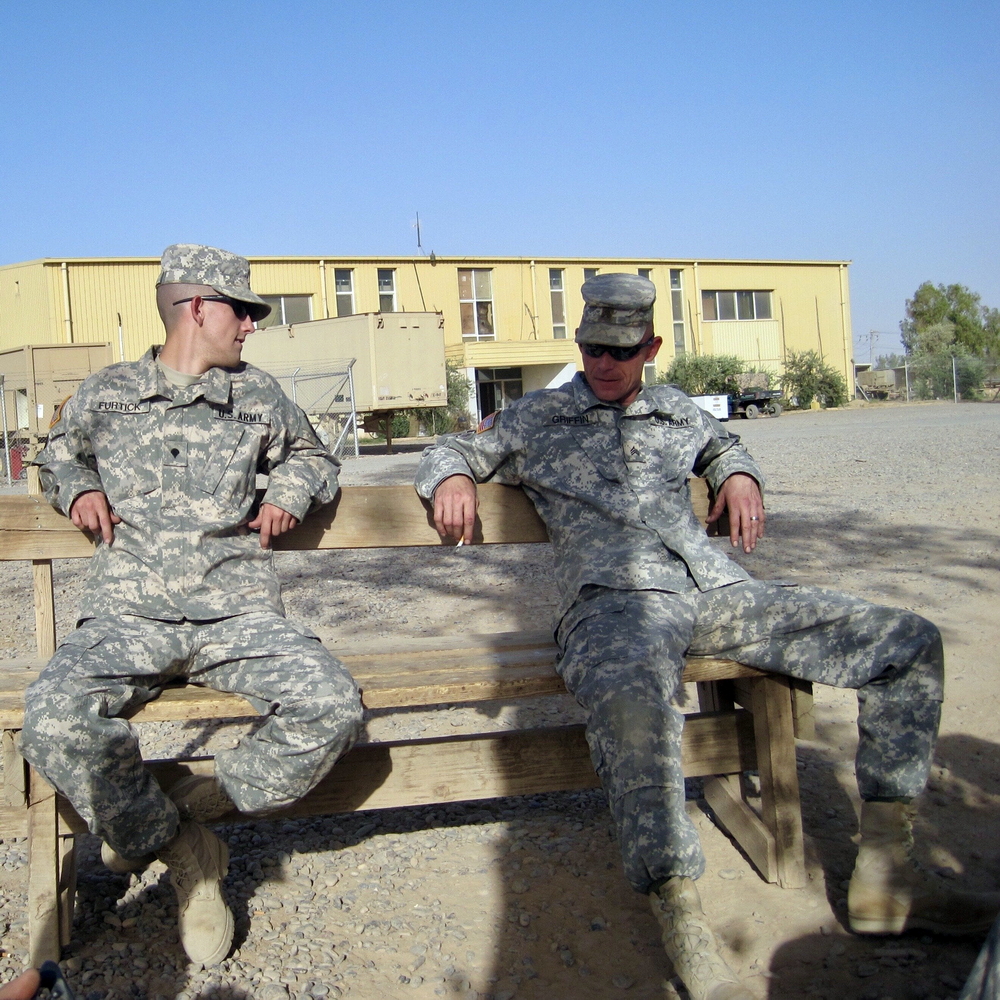
Sergeant Mark Griffin for sure. He was our Company Weapons Specialist and one of several Platoon Sergeants I had over both deployments.
Anytime I had an issue I couldn’t resolve myself, and trust there was plenty, he would come to my aid at the drop of a hat. He never hesitated to speak up on my behalf, even if he knew he might end up in the hot seat for it.
I never could seem to meet eye to eye with my Section Sergeant during my first combat tour, and due to our never-ceasing disagreements, I was denied promotion to Sergeant a half dozen times around.
During one of the stated NCO meetings with our Company First Sergeant to determine which Specialists in each Platoon should become eligible for promotion, Sergeant Griffin took notice of my consecutive non-promotion counseling statements written by my Section Sergeant and immediately suggested to the 1SG that I be transferred to his Platoon.
Whatever he said worked because I was approved within the same hour and finally became a promotable Specialist at the very next E-5 Promotion Board one week later.
List the names of old friends you served with, at which locations, and recount what you remember most about them. Indicate those you are already in touch with and those you would like to make contact with.
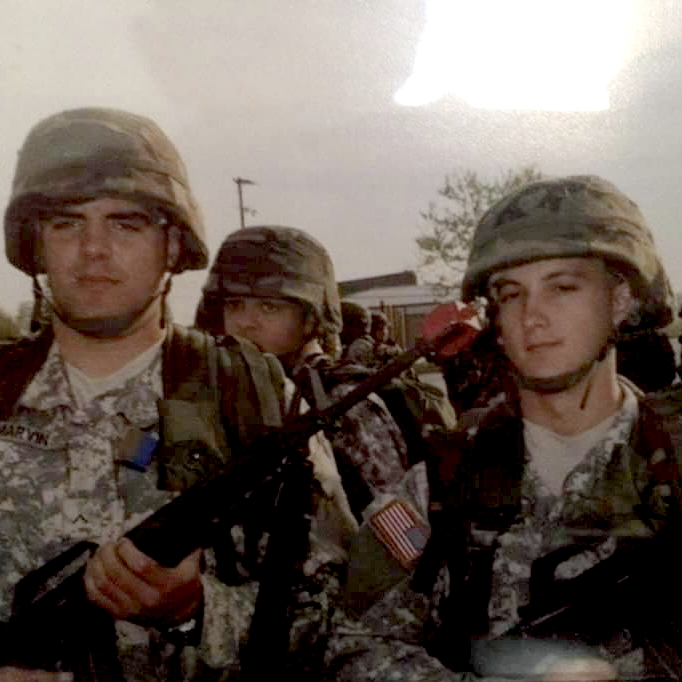
Sergeant Robert Marvin, now a Disabled American Veteran, became my best friend in Basic Combat Training and AIT.
He and I still keep in touch to this day. He and his beautiful family drove all the way from Michigan to attend my wedding years after we were discharged, and of course, he served as my best man.
What I remember most about Rob was his “spur of the moment” and brilliant ideas. During a hellacious Ruck March and Field Training Exercise during Basic Training, all of us Recruits were informed that by morning formation, if a single hair were to be found on our faces, we would dearly pay to each Drill Sergeant, one by one.
We had no mirrors to see ourselves to shave at the crack of dawn the following day, and so Soldiers were panicking all around us and obviously not sure if they were cleanly shaven. Rob suddenly suggested, “Hey, Furtick, let’s just shave each other!”
We were caught doing this by two Drill Sergeants behind the tree line and eventually placed front and center during our shaving inspection later that morning.
The Drill Sergeants found almost all of the Recruits half-shaven with bleeding cuts all over their necks and faces and still yet laughing at the fact that Rob and I had “helped each other out” during the panic.
They made all the unsatisfactory guys fill and carry sandbags for no apparent reason, but not before telling the whole Platoon that they should, “Take notes from those two!”
Rob and I evaded the sandbag detail and proceeded to morning chow, which was a nice warm MRE. I’m sure we evaded a whole lot more than just that little detail in the years to follow.
Can you recount a particular incident from your service, which may or may not have been funny at the time, but still makes you laugh?
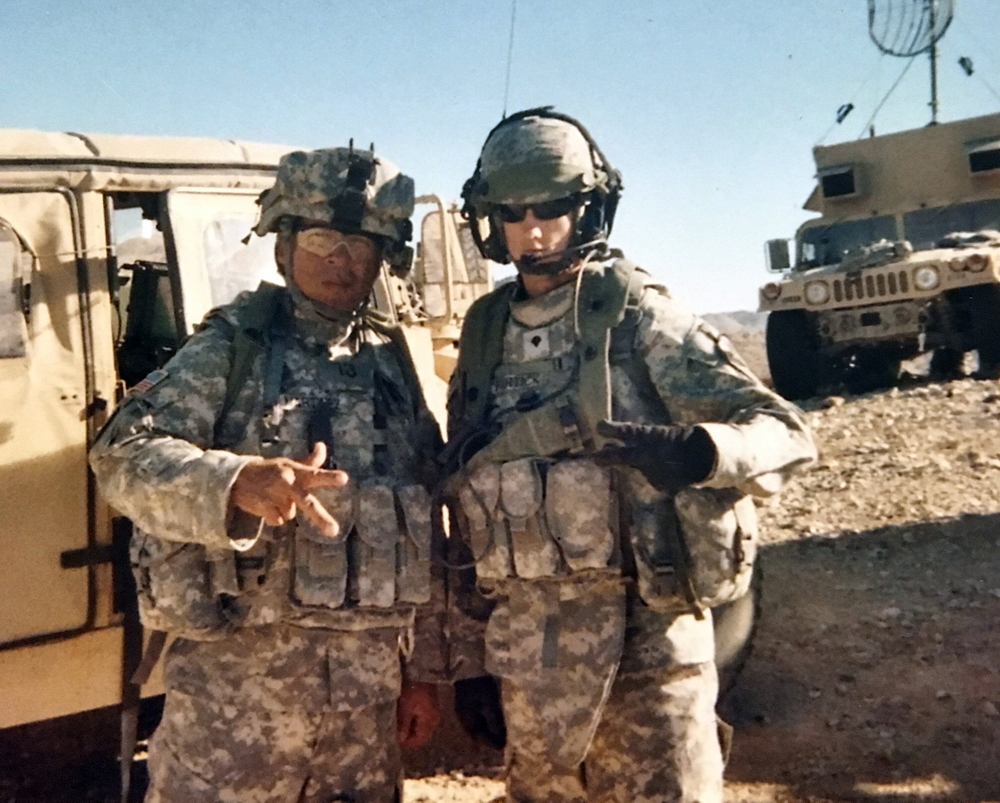
Funny you ask. I got into a scuffle with another Soldier while on my second deployment. The guy I mentioned was a Fueler, and I was our acting lead Machine Gunner at the time.
The Gun Truck Drivers and Gunners would swap out every few missions taking our vehicles to the fuel points for diesel to keep things fair and balanced.
Needless to say, and for reasons unknown, this Soldier didn’t seem to like me much. He refused to fuel my Gun Truck one afternoon, and in my amazement, I just sat there in waiting while he slurred a few nasty comments my way.
Finally, another Fueler showed up to relieve him and immediately fueled my truck for dispatch. He seemed just as confused as I was.
Consequently, I never forgot about that incident because I missed a formation that evening, and my truck was the only one not on the line ready to roll out. We had no phones to communicate with our leaders, so I was just stuck like Chuck at the fuel point for two hours while they sent two other Gunners to find me.
Days later, this same Fueler challenged me to a fight during a de-briefing in front of a dozen Gun Truck guys. Angrily, I accepted his challenge against my better judgment.
One of our senior leaders told on us, and we were called to the First Sergeant’s office soon after. First Sergeant came up with a plan he deemed would, “Help us get along!”
He took us out to a heaping pile of busted concrete rubble about ten feet high and said, “For the next five days, you two will eat chow and head over here with camelbacks and flashlights. You two are going to build me a wall from this end of the lot down to the other. One of you will carry a stone while the other carries the flashlight, then swap out. By the weekend, you boys are going to be best friends!” Then he walked off.
First Sergeant Walker was right. We did become very close friends while building that wall.
What profession did you follow after your military service and what are you doing now? if you are currently serving, what is your present occupational specialty?
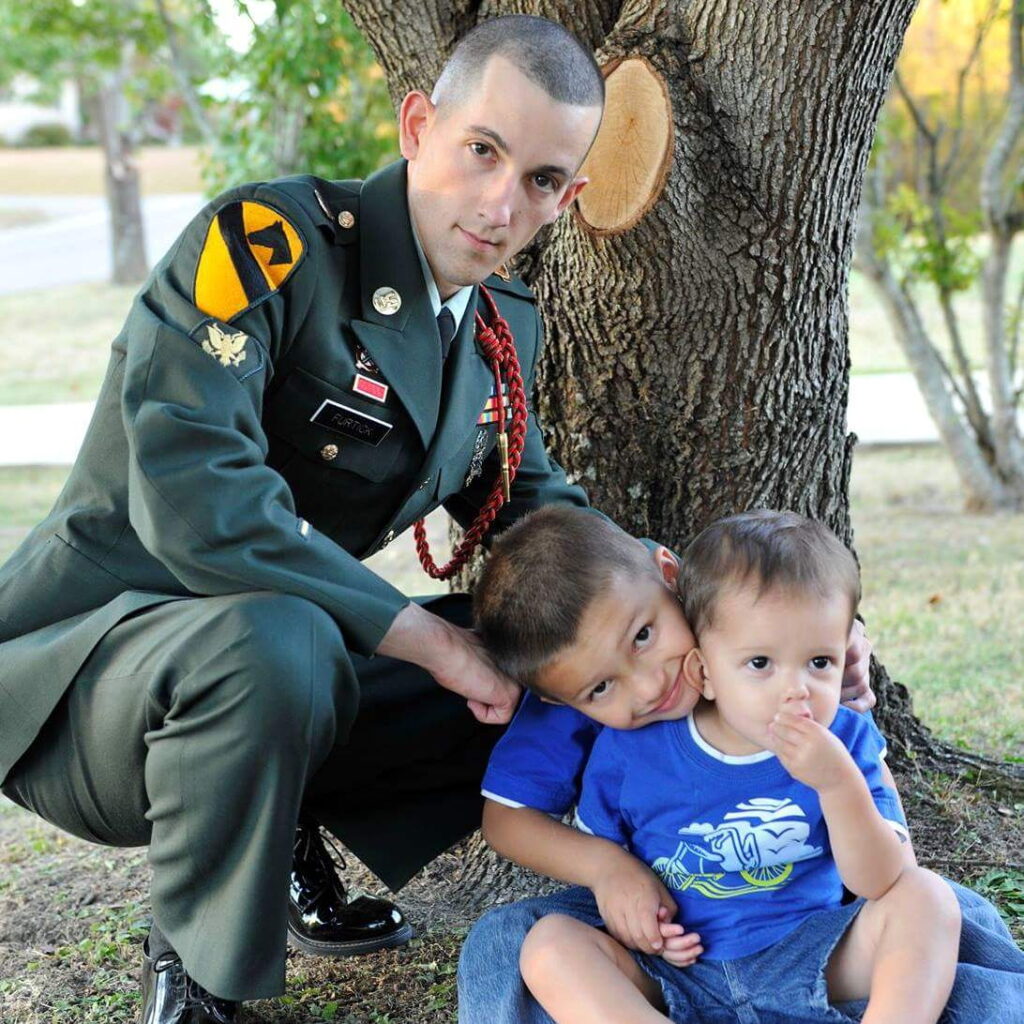
During my bout with cancer, I was able to graduate with honors from The Recording Conservatory of Austin, an audio engineering technical school in Central Texas.
After separation, I also got a few good semesters of actual college under my belt at Miami International University but eventually had to drop out and move back to my hometown in rural Mississippi after discovering this strange illness I was experiencing was cancer. After going into remission, I decided not to go back to MIU and instead got my commission to serve as a Notary Public for the State of Mississippi.
I am now being compensated for my service-connected disabilities and am a proud full-time stay-at-home Dad to our four wonderful boys.
What military associations are you a member of, if any? what specific benefits do you derive from your memberships?
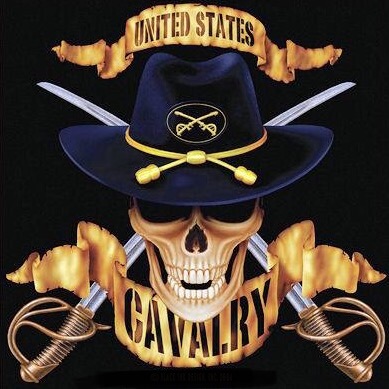
I am a life member and staunch supporter of the Disabled American Veterans and a compensation beneficiary of the Department of Veterans Affairs. The VA’s benefits are endless, and I am well taken care of for the injuries I sustained in Iraq.
I am also very interested in becoming a life member of the First Cavalry Division Association, and Together We Served.
It would be great to get more involved in a position that would enable me to help educate more veterans about what benefits they are eligible to receive.
To my surprise, I regularly meet guys and gals who served overseas and still do not comprehend what benefits they are entitled to.
In what ways has serving in the military influenced the way you have approached your life and your career? What do you miss most about your time in the service?
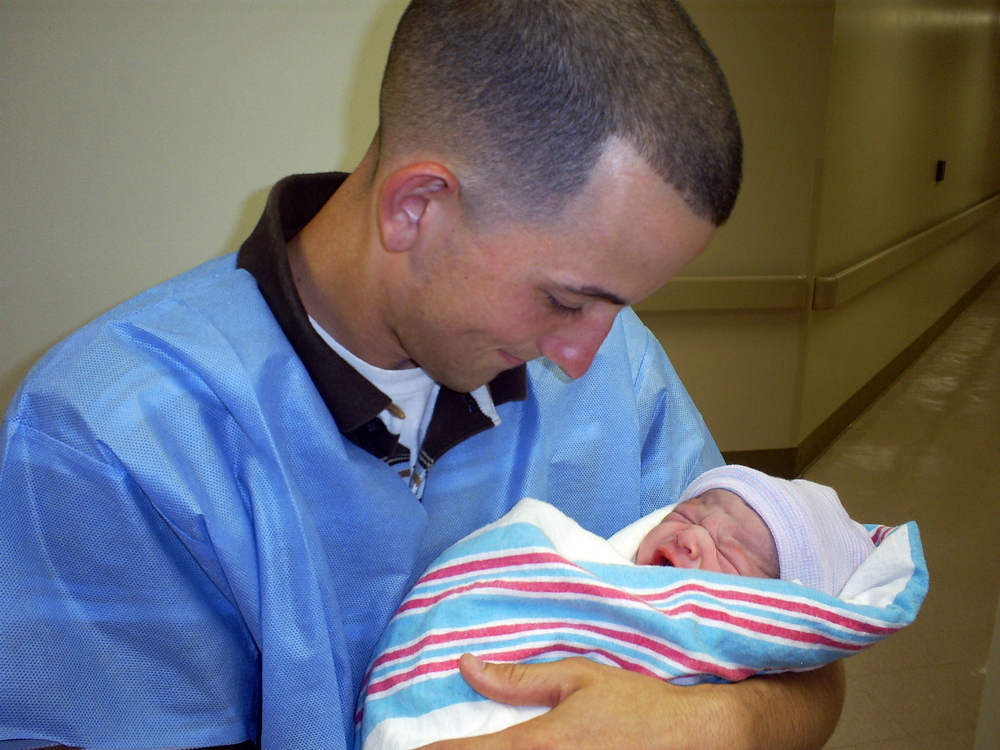
My experiences in the Army taught me to take nothing for granted, and I am very proud to be alive with all my limbs and decent eyesight.
I use my military background, code of ethics, and warrior ethos to teach my children the good morals and values they need to become successful and productive members of society in today’s United States of America.
I so dearly miss the camaraderie amongst my brothers and sisters in arms, as well as the structure the military service provides those who have the intestinal fortitude to join.
Based on your own experiences, what advice would you give to those who have recently joined the Army?
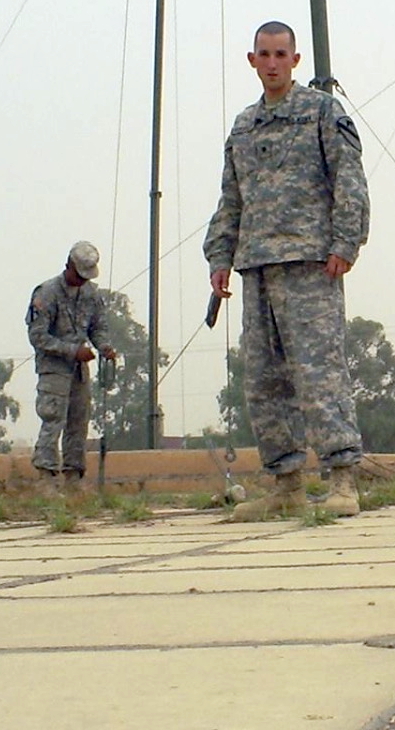
I can’t count how many young men have approached me over the last decade asking for advice on which branch of the service they should join, what to expect in Basic Training, how the military treats its members, etc.
It is impossible for me to tell them everything they need to know or which branch would best suit their own needs, so I always resort back to my own version of counsel that was given to me by Retired Master Sergeant Miguel Huaman:
“Charge hard and give relentless effort in everything you do. Complaining will only prolong things, and it is a total drain on the human spirit and the morale of your peers. Work smart, not hard. Once you become a leader, earn the trust of your Troops by leading by example and demonstrating how Soldiers should conduct themselves when leaders aren’t looking. Integrity is everything!”
In what ways has togetherweserved.com helped you remember your military service and the friends you served with.
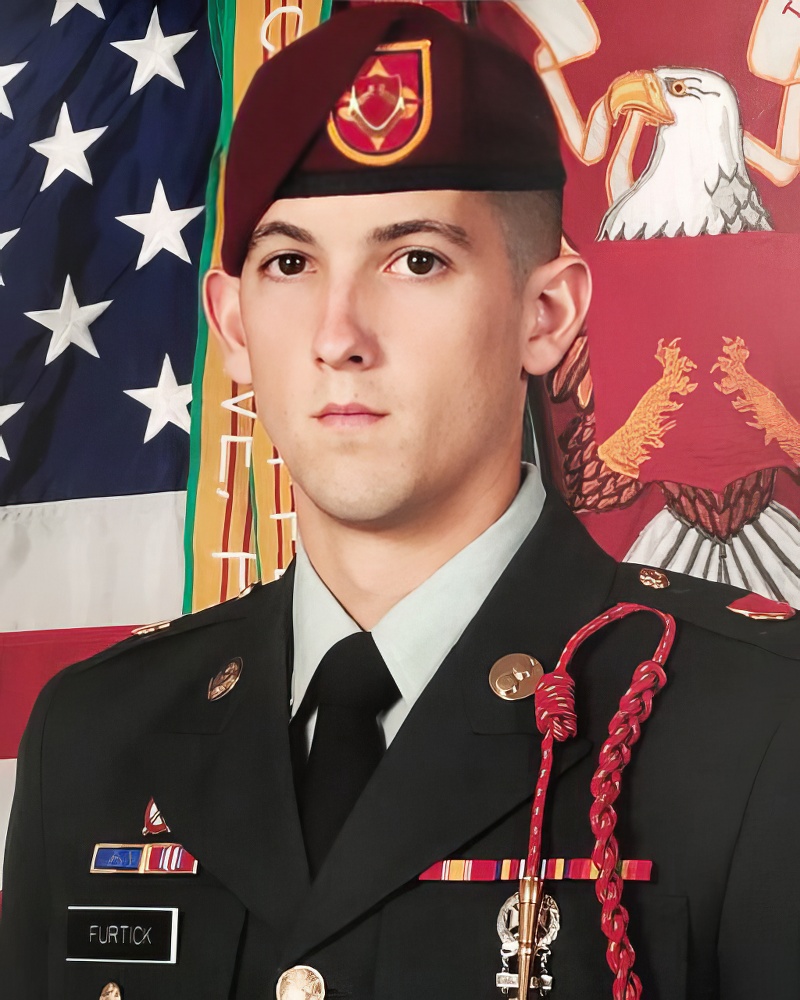
Together We Served is an amazing platform dedicated to the remembrance of American Service Members and Veterans. It is unlike any other I’ve seen thus far.
This reflection on my time in uniform has brought back so many good memories I had altogether forgotten and has reconnected me with Veterans I lost touch with years ago.
TWS has genuinely inspired me to tell more people my story.
PRESERVE YOUR OWN SERVICE MEMORIES!
Boot Camp, Units, Combat Operations
Join Togetherweserved.com to Create a Legacy of Your Service
U.S. Marine Corps, U.S. Navy, U.S. Air Force, U.S. Army, U.S. Coast Guard

0 Comments